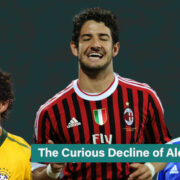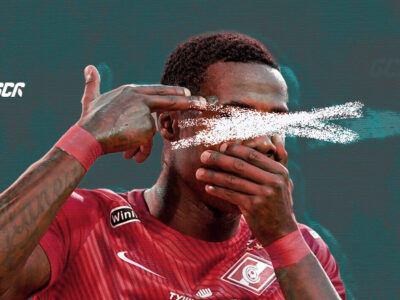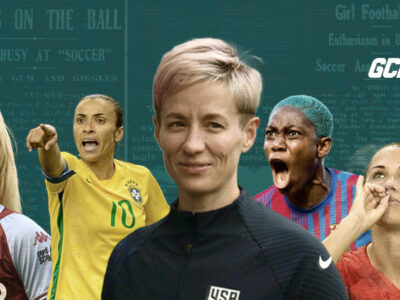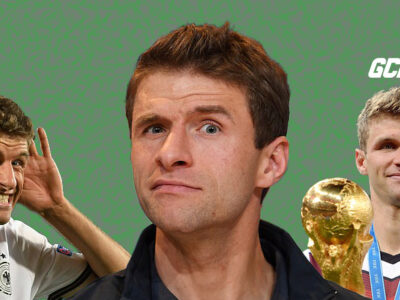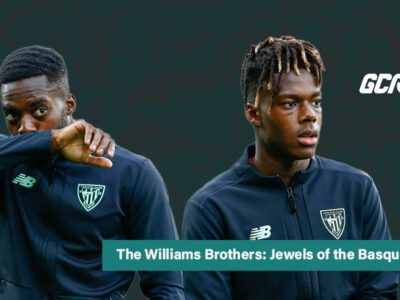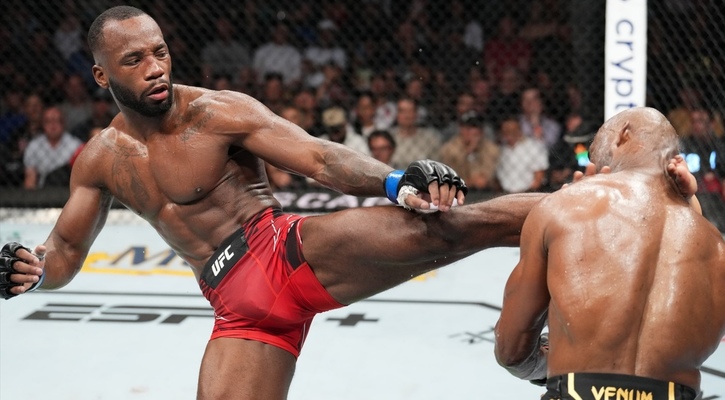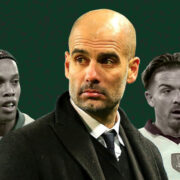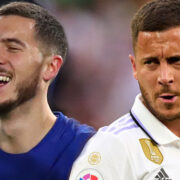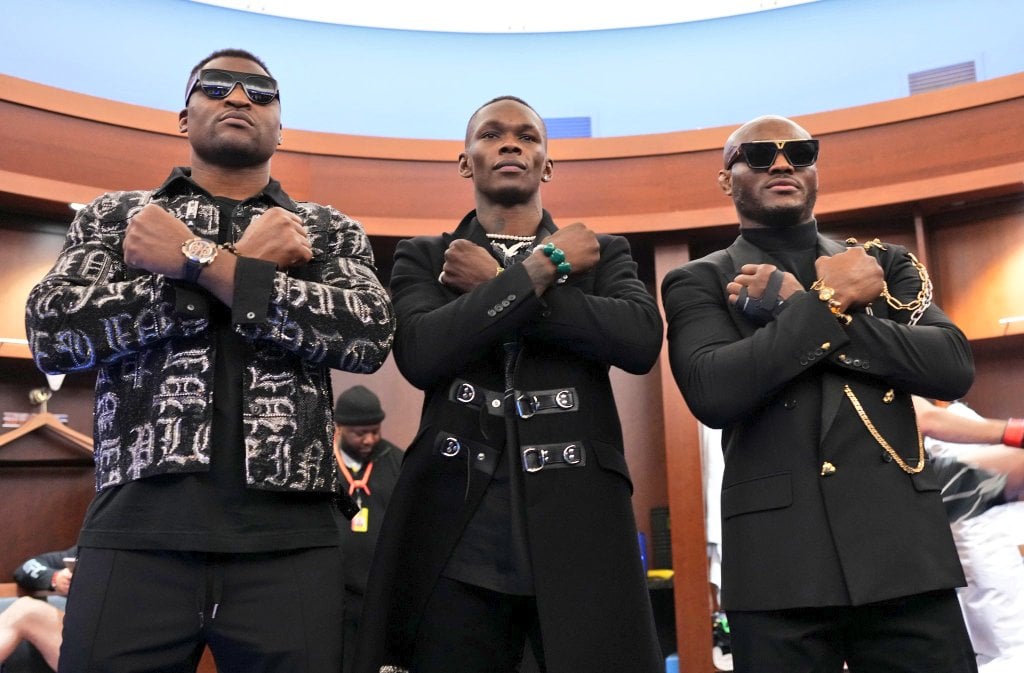Throughout the growth of football in South America, footballers have had strange relationships with drug cartels, one that seemed quite unusual but explainable.
These cartels had the means and money to buy top players and host matches where players would play and entertain their hosts.
However, one could easily forecast that such a relationship would turn sour at some point due to the brutal nature of the cartels and the unpredictable outcome that comes with sports and football.
In the halls of history, the name Escobar conjures different images for different people.
For most, it’s the notorious drug lord Pablo Escobar, whose reign of terror and influence in Colombia during the 1980s and early 1990s left an indelible mark on the country’s psyche.
For a relative few, it’s Andres Escobar, the talented Colombian soccer player whose tragic death in 1994 shocked the World and laid bare the intersection of sports, crime, and politics in Colombia.
Pablo Escobar, often dubbed the “King of Cocaine,” through his notorious but effective system, became one of the wealthiest and most powerful drug lords in history.
His Medellín Cartel was very successful with the supply and distribution of cocaine, which was the source of his immense wealth. But with the wealth and power came the brutal violence that the cartel was exhibiting.
Assassinations, bombings, violence, and ruthless war between the Colombian government and rival cartels became part of everyday life in the country.
Who is the other Escobar?
While Pablo gained popularity for his drug trafficking exploits, another “Escobar” was also making a name for himself in the world of sports.
Andres Escobar, a talented and charismatic defender, rose through the ranks to become one of the country’s most beloved soccer stars.
His graceful play and unwavering commitment to his team endeared him to fans across Colombia and beyond.

Andres was one of Colombia’s most capped players prior to the FIFA World Cup 1994, which was to be hosted in the United States. He had over 50 caps to his name.
He represented his nation in that edition of the World Cup alongside a group of players tagged ‘the golden generation’. Among them were lightning-quick, free-scoring Parma forward Faustino Asprilla as well as bushy-haired, mustachioed talisman Carlos Valderrama.
Colombian football during the Escobar Era
Aside from the ironic coincidence that both individuals did happen to have the same last name and were very successful in their fields at the same time, the parallel lives and deaths of Pablo and Andres Escobar highlight the complex realities of Colombia’s history.

This was also an era in Colombia where elite star players often represented cartels and crime syndicates, and this symbiotic relationship hugely impacted football in the country.
On one hand, there was Pablo Escobar, whose empire wreaked havoc on Colombian society, leaving a trail of bloodshed and destruction in its wake.
On the other hand, there was Andres Escobar, a talented athlete whose passion for soccer inspired a nation and brought joy to millions.

Colombia had been widely expected to contend at USA ’94. Their outstanding exploits in the qualifying campaign fueled this expectation, with Los Cafeteros finishing third in the CONMEBOL standings and beating Argentina 5-0 in their final qualifying fixture.
These expectations, coupled with the fact that the nation was in a state of emergency, further amplified the team’s necessity to perform at a commendable level in the World Cup.
Things did not go as planned, and what was supposed to be a stellar campaign for the Colombians ended up being a terrible outing.
Having lost their opening fixture, a 3-1 loss to Romania, the players were under massive pressure to perform in the penultimate group stage match against the tournament host, the USA.
The own goal that became a death sentence
The match between Colombia and the US was cagey and end-to-end, with both teams separated by just six positions on the FIFA World rankings.

Things took a surprising turn in the 33rd minute when Andres Escobar, in an attempt to clear a cross with his right foot, inadvertently put the ball in his own net after sticking.
The visibly shaken and crest-fallen Andres Escobar got up from the floor to the cheers of delighted USA fans. He looked like a dead man walking.
Colombia ended up losing the game and eventually finishing bottom of their group despite a 2-0 win over Switzerland.
The news of Colombia’s exit shocked football fans and Colombians, who had expected a stellar performance from their golden generation.
As the Colombia goalkeeper’s nephew watched the game on TV, he was overwhelmed by a sudden and unmistakable fear, a feeling that no one, especially a nine-year-old, should ever endure.
“At that moment, he said to me, ‘Mommy, they’re going to kill Andrés,” Escobar’s sister Maria Ester would later admit. “I replied: ‘No, sweetheart, people aren’t killed for mistakes. Everyone in Colombia loves Andrés’.”
But this was Colombia during Escobar’s reign. People were blown to bits for being in the wrong place at the wrong time.
The rest of the world might have thought the Andres incident was just another own goal, but little did they know of what was to unfold.
The fate of the two Escobars
Pablo Escobar was shot and killed by Colombian security forces on a rooftop in Medellín, Colombia, during a raid. His death marked the end of his reign as one of the most influential and infamous drug traffickers in history.
The successful destruction of arguably the world’s most notorious drug kingpin caused nationwide unrest, which led to increased violence in the country and territorial battles amongst cartel members with the void created by his demise.
On the 2nd of July 1994, as Andre Escobar got into his car after exiting the club following an argument, two men pulled out .38 caliber revolvers and shot him multiple times in the back. He died on the spot.
Events surrounding the cartel’s involvement in Andres’ death highlight the potential dangers associated with the intersection of organized crime and professional sports.
While a direct link between Andres’ own goal and his death hasn’t been established, the timing and circumstances raise concerns about the impact of extreme fan behavior on player safety.
After his death, Andres Escobar received a state funeral, with Colombian President César Augusto Gaviria in attendance.
It took another 20 years for Colombia to raise another golden generation.

Andres Escobar’s murder serves as a stark reminder of the importance of maintaining a clear separation between passionate fan support and violent extremism in sports and beyond. Like Justin Fashanu, his death has opened the discussion about protecting footballers from off-field violence.
Who wrote this?
Ebuka is a tech enthusiast, writer, and eSports guru currently working with a team of daring Africans to revolutionize the writing scene. He enjoys answering questions, brainstorming new ideas, and discussing the future of sports and esports.








